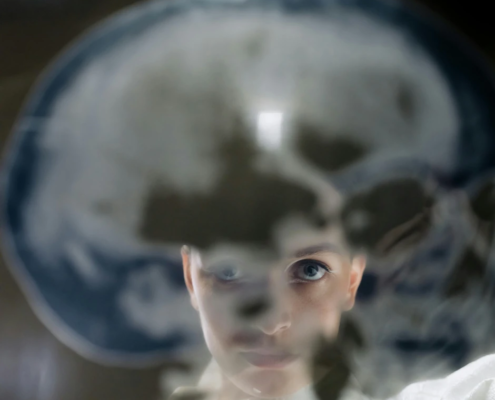Latest news
The macro-threats of microarchitectures
11 September 2025/by Ingrid ColleauGreenhouse gases: Mirega sets its sights on
10 September 2025/by Ingrid ColleauRenardo lays its cards on the table in embedded electronics
9 September 2025/by Lucas DechezellesValérie Forest: from a desire to be useful to global recognition
23 July 2025/by Ingrid ColleauLiquefying hydrogen: a challenge to the last grain
21 July 2025/by Lucas DechezellesNew wind for indoor air quality
17 July 2025/by Ingrid ColleauAll our news

From 5G to 6G: the unstoppable progress of generations
Digital, In the NewsThrough a series of articles, this I'MTech collection offers various insights to better understand the technical challenges, as well as the issues of optimization and energy efficiency, that accompany the transition from 5G to 6G. Between the explosion of the IoT, the emergence of the metaverse, and the imperative of energy efficiency, we take a look at the future of telecommunications.

5G & 6G: the antennas that shape networks
Digital, In the NewsIn a context of constantly growing needs for data transmission, 5G and 6G networks must comply with increasingly strict technical obligations in terms of flexibility, miniaturization, and energy optimization. Solutions explored by researchers include optimal management of radiation patterns and the development of concrete applications for millimeter wave frequencies. Two projects, YACARI and PIIEC ME/CT, are tackling the technical obstacles to these approaches by combining different antenna technologies.

5G connecting constellations
Digital, In the NewsA space-based solution to connect remote regions is soon to become reality. But using low-orbiting satellites as telecommunications relay stations means certain functionalities of current terrestrial solutions have to be reinvented. Their constant movement is the reason. For the BPI 5G NTN mmWave project, Télécom Paris scientists are tackling this technical challenge, by developing new algorithms and performance models in order to assess the limitations of the system and then optimize it.

Slicing: a MUST for multisectoral communication
Digital, In the NewsIn emergency situations such as a major car crash, proper coordination between the emergency, medical and transport services is vital. Yet these different operators often use compartmentalized communication services which hinder their performance. The NF-MUST project aims to create a dynamic, shared and flexible network architecture to enable seamless communication. It relies on slicing techniques and virtualized networks to meet the demands of different sectors.

No more, no less: energy-efficient networks for 5G
Digital, Energy & environment, In the NewsFaced with the expansion of 5G and the challenges of 6G, energy restraint and exposure to electromagnetic fields are becoming major issues for the networks of tomorrow. Between optimizing infrastructures, mobile sensors and prediction models, scientists are striving to reconcile performance, lower consumption and quality of service. Just Enough Network, a project co-led by Télécom Paris, is therefore trying to build networks that are ‘just enough’ to meet our needs, without surplus or wastage.

From Fossil to Flexible: Joulzen Gives Old Oil Tanks a Future
Energy & environment, In the News, Start-up-enThe countdown has started: by 2035, oil heating systems will be banned across many European countries. But what happens to the tanks left behind? In Austria, a team of young engineers saw this constraint as a resource. Their start-up incubated in TU Wien, Joulzen, wants to turn these dormant giants into heat storage systems—and maybe even into players in the European energy grid.

PERSEUS makes a breakthrough for cell-free networks
Digital, In the NewsDespite all the promises of 5G, current networks are struggling to ensure seamless connectivity in dense or complex environments. To tackle this problem, the PERSEUS project is developing solutions for cell-free networks in which distributed antenna work together to provide a more fluid service. Based on technologies such as distributed MIMO and new-generation waveforms, the IMT Atlantique research teams involved in the project are trying to solve the technical challenges posed by this new approach.

Oncoelectronics: A spark in the fight against brain tumors
Health, In the News, Start-up-enElectric fields to curb cancer? That's the bold approach of the Franco-International team at Oncoelectronics. Born in the heart of Provence, the start-up draws on the experience of scientists at Mines Saint-Etienne to design implantable devices to slow the progression of incurable brain tumors. A project at the crossroads of bioengineering, neurotechnology and microelectronics.

Boosting tomorrow’s IoT networks
Digital, In the NewsThe goal of the FITNESS project is to develop networks capable of adapting to the needs of massive IoT, industrial IoT and connected transport solutions. The project is supported by the expertise of several IMT schools to address the challenges that arise from the densification of connected objects, more robust applications, energy management and various protocols, and to optimize the performance of networks in real time.







